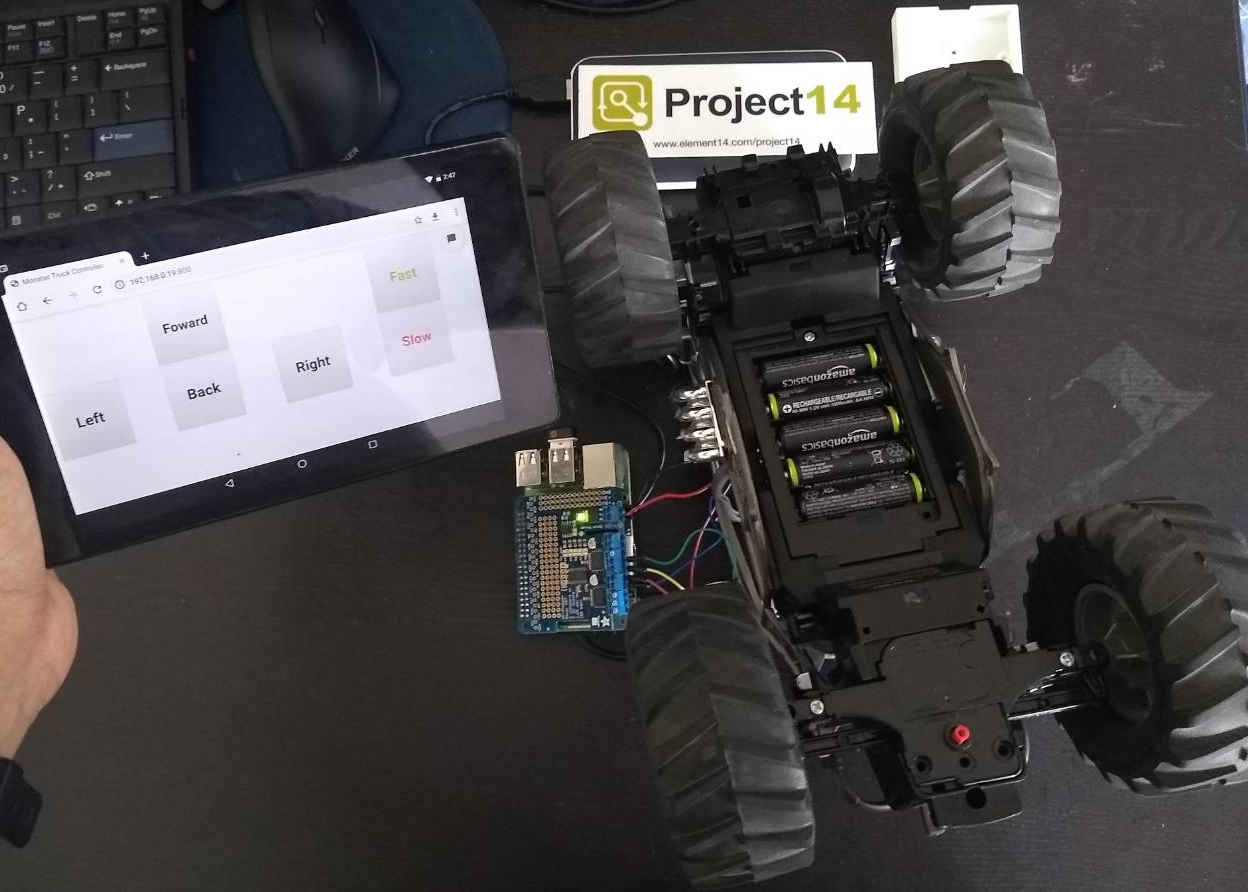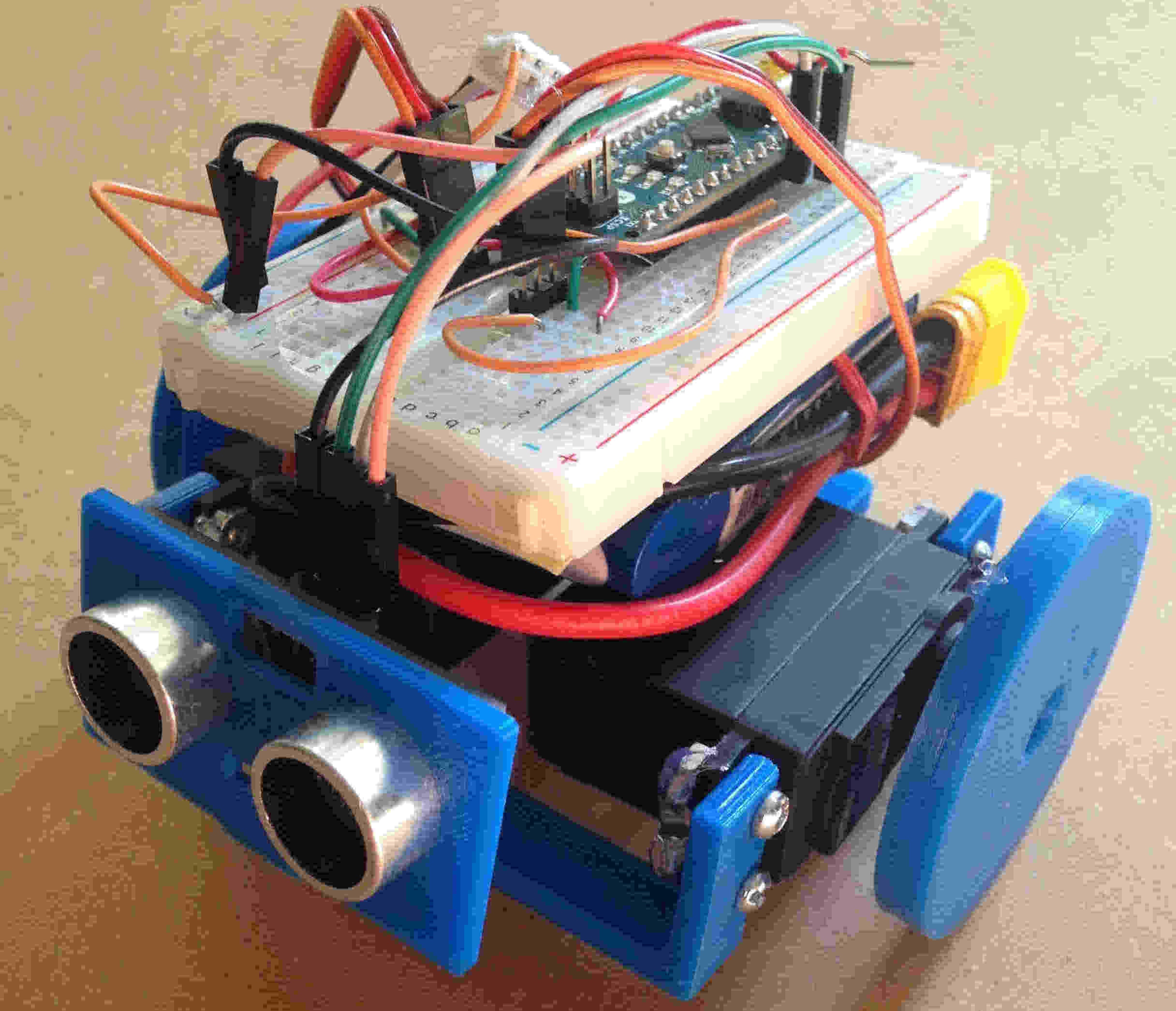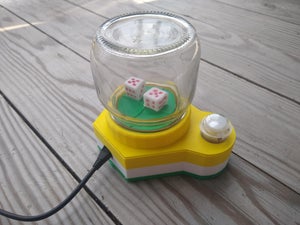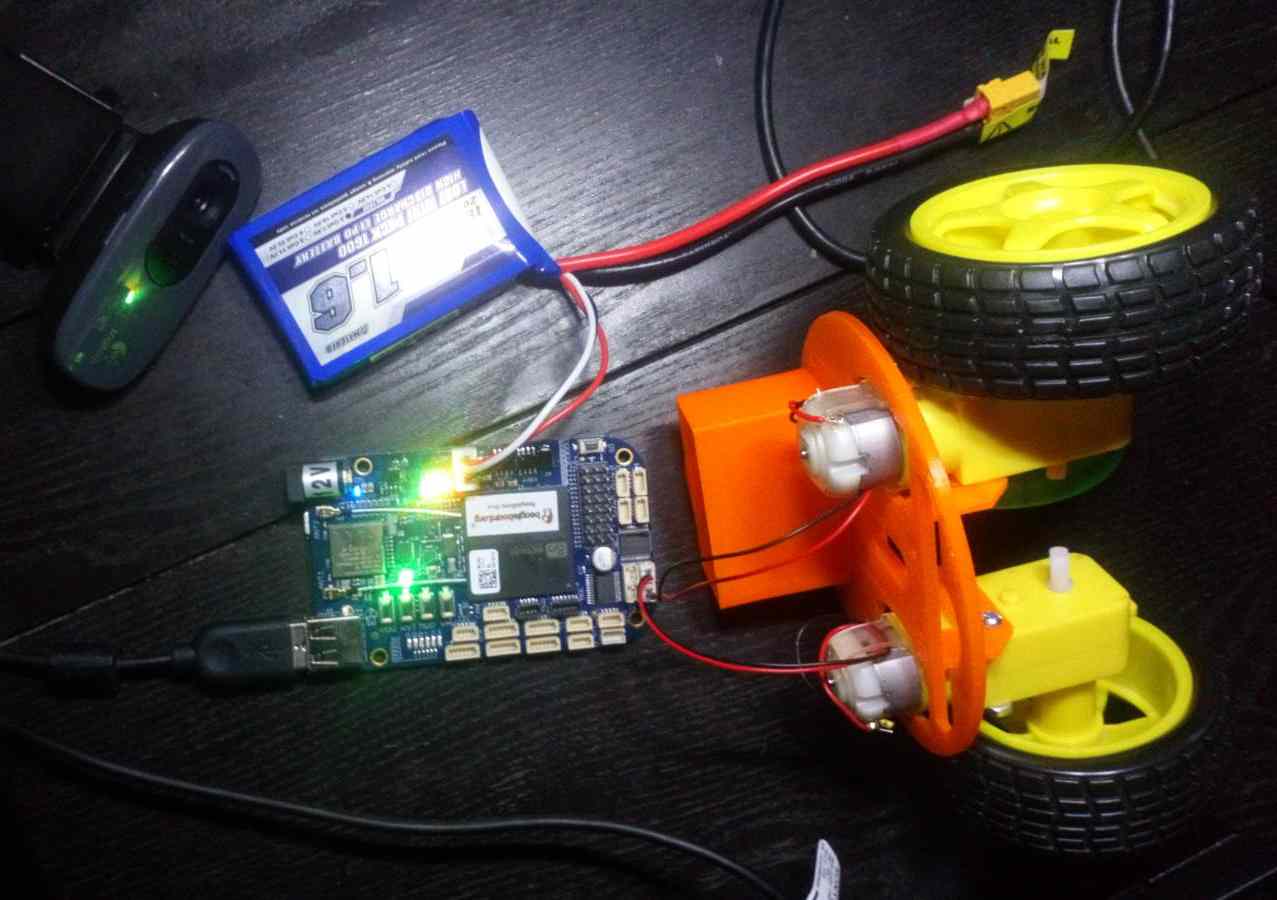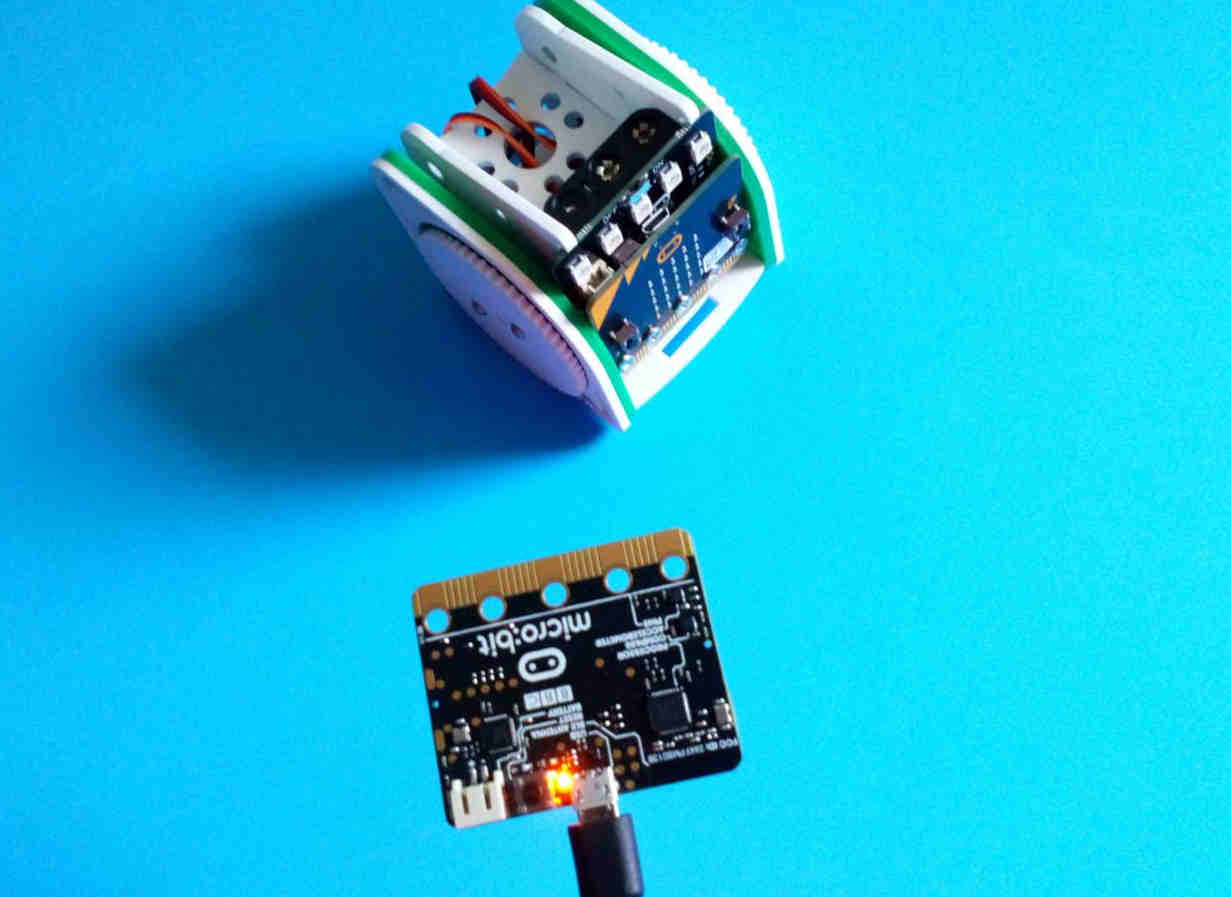Robotics is an interdisciplinary field that integrates computer
science and engineering. Robotics involves the design,
construction, operation, and use of robots. The goal of robotics
is to design machines that can help and assist humans. Robotics
integrates fields of mechanical engineering, electrical
engineering, information engineering, mechatronics, electronics,
bioengineering, computer engineering, control engineering,
software engineering, mathematics, among others.
Curious about controlling a Robot with a smartphone, or making
autonomous Robots. You have come to the right place. Take one of
our Workshops and learn the basic concept and programming required
to design a fully functional Arduino or a Raspberry Pi Robot
Check out some of our projects below to get inspired.
Introduction to Robotics Workshop - Arduino
Duration: 12 hours
This course is designed to help you make and program Robots. The
primary focus of the workshop is to go over the basics of
construction, programming, and electronics skills required to
build a couple of Robots. By making Robots, the attendees can
create their own devices and gadgets that interact with the real
world.
We will start with the basic components of robots and their
functions. Then understand what is an Arduino, and how it is
useful in creating Robots. And if you have all the parts mentioned
below, you will build, program and take home an Obstacle Avoiding
Robot.
Introduction
- What is an Arduino?
- History of Arduino
- Why open-source hardware and software?
- Demo’s – of what are we building
Programming Basics
- Why learn programming?
- Programming – your first Arduino sketch – Blink.
- Syntax, Program Flow, and Comments
- Literals, Variables, and Data Types
- Arithmetic Operators
- Arrays and Strings
- Conditional Statements
- Loops
- Serial Input and Output
- Debugging and General Tips on using the Arduino IDE
Electronic Engineering Basics
- Ohm's Law
- What is a Breadboard?
- Understanding Circuit
- Resistors - Series vs. Parallel
- Reading the value of a Resistor
- Voltage Dividers
- Diodes for Polarity protection
- LED’s make it blink
- Different types of LEDs
- Switches/Buttons
- Internal pull up resistor
- Debouncing in software
- Slide switch
- Potentiometer
- Light Sensor
- Using a Multimeter – you need one for your home.
- Demos
Electronics components related to Robotics
- Ultrasonic sensor – measure distance
- DC Motor
- Servo Motor
- Stepper Motor
- H-Bridge
- Joystick
- Accelerometer
Build an Obstacle Avoiding Robot
- Components Obstacle Avoiding Robot
- Ultrasonic Sensor
- Arduino program to measure distance
- Connecting motor to motor driver
- Adding the Motor to the chassis
- Arduino program to move the bot
- Modify the program to add the Ultrasonic sensor
- Adding a Servo
- Uploading the program to the bot.
Advanced topics and going further
- Controlling a robot using a web-app
- Build a robot using Raspberry Pi Zero W
- Beaglebone Blue for Robotic
- Radio controlled (RC) wing/plane.
- Building Quadcopters/Drones.
More Demos of interesting projects, if time permits..
Price: Rs 1200 per student, for a minimum of 10 students and 200 Rs
for the 3D printed Robot chassis
Please note, the price for the two-day workshop does NOT include
refreshments, and space to conduct the workshop. As a suggestion
for the Workshop space, and something that has worked in the past,
is to have your parents/guardian speak to the school
teacher/principal to get the computer lab for the weekend/holiday.
In addition, this price is available only for Goa, for neighboring
States please get in touch via email.
Hardware Required - Adruino Nano Project Learning Kit- cost
approximately Rs 1500 + Ultrasonic, Motor driver and Motors+
wheels is approximately Rs 800
Here is the list of Hardware required, if you plan on doing the
practicals in the Workshop, a suggestion here is to have at least
2/3 students contribute and buy the hardware.
- Arduino Nano Board
- USB cable for Programming board
- 2 Red LEDs, 2 Yellow LEDs, 2 Green LEDs
- 1 RGB LED
- 2 Photo Resistors
- 2 Push Buttons
- 1 10K Potentiometer
- 1 buzzer
-
5 220 Ohms resistors, 5 1K resistors, 5 4.7K resistor,5 10 K
resistor
- 1 DHT11 or LM35 temperature sensor
- Male to Male jumper cables 20 numbers
In addition, to the above Arduino Learning kit, you will also need
the following Robotics specific components
- 1 Ultrasonic sensor HS04
- 2 DC motor and wheels Dual Shaft - yellow color
- L298N Motor Drive Controller
Introduction to Robotics Workshop - Raspberry Pi/Pico
Duration: 12 hours
This course is designed to help you make and program Robots. The
primary focus of the workshop is to go over the basics of
construction, Python programming, and electronics skills required to
build a couple of Robots. By making Robots, the attendees can
create their own devices and gadgets that interact with the real
world.
We will start with the basic components of robots and their
functions. Then understand what is a Raspberry Pi Zero/Pico, and how it is
useful in creating Robots. And if you have all the parts mentioned
below, you will build, program and take home an Obstacle Avoiding
Robot with the Raspberry Pi Pico Board.
Introduction
- What is the Raspberry Pi?
- Why use the Raspbery Pi Pico
- Why open-source hardware and software?
- What is the difference between Micro-controller and Microprocessor?
- Demo’s – of what are we building
Python Programming Basics
- Why learn programming?
- Using the Python Development environment – Thonny IDE
- Blinking an LED on the Raspberry Pi Pico
- Variables and Data Types
- Literals, Variables, and Data Types
- Arithmetic Operators
- Arrays and Strings
- Conditions
- Loops
- Functions
- class
- Error and Exception handling
- Debugging and General Tips on using the Thonny Python IDE
Electronic Engineering Basics
- Ohm's Law
- What is a Breadboard?
- Understanding Circuit
- Resistors - Series vs. Parallel
- Reading the value of a Resistor
- Voltage Dividers
- Diodes for Polarity protection
- LED’s make it blink
- Different types of LEDs
- Switches/Buttons
- Internal pull up resistor
- Debouncing in software
- Slide switch
- Potentiometer
- Light Sensor
- Using a Multimeter – you need one for your home.
- Demos
Electronics components related to Robotics
- Ultrasonic sensor – measure distance
- DC Motor
- Servo Motor
- Stepper Motor
- H-Bridge
- Joystick
- Accelerometer
Build an Obstacle Avoiding Robot
- Components Obstacle Avoiding Robot
- Ultrasonic Sensor
- Python program to measure distance
- Connecting motor to motor driver
- Adding the Motor to the chassis
- Program to test DC motors on the robot
- Modify the program to add the Ultrasonic sensor
- Adding a Servo
- Uploading the program to the bot.
Advanced topics and going further
- Controlling a robot using a web-app
- Build a robot using Raspberry Pi Zero W
- Beaglebone Blue for Robotic
- Radio controlled (RC) wing/plane.
- Building Quadcopters/Drones.
More Demos of interesting projects, if time permits..
Price: Rs 1200 per student, for a minimum of 10 students and 300 Rs
for the 3D printed Robot chassis
Please note, the price for the two-day workshop does NOT include
refreshments, and space to conduct the workshop. As a suggestion
for the Workshop space, and something that has worked in the past,
is to have your parents/guardian speak to the school
teacher/principal to get the computer lab for the weekend/holiday.
In addition, this price is available only for Goa, for neighboring
States please get in touch via email.
Hardware Required - Raspberry Pi Pico Kit- cost
approximately Rs 1300 + Ultrasonic, Motor driver and Motors+
wheels is approximately Rs 500
Here is the list of Hardware required, if you plan on doing the
practicals in the Workshop, a suggestion here is to have at least
2/3 students contribute and buy the hardware.
- Raspberry Pi Pico with Headers
- USB cable for Programming board
- 2 Red LEDs, 2 Yellow LEDs, 2 Green LEDs
- IR Led
- IR remote
- 1 10K Potentiometer
- Breadboard
-
5 330 Ohms resistors, 5 1K resistors,5 10 K resistor
- 1 DHT11 or LM35 temperature sensor
- Male to Male AND female to female jumper cables 20 numbers
In addition, to the above Pi Pico Learning kit, you will also need
the following Robotics specific components
- 1 Ultrasonic sensor HS04
- 2 DC motor and wheels Dual Shaft - yellow color
- L298N Motor Drive Controller
